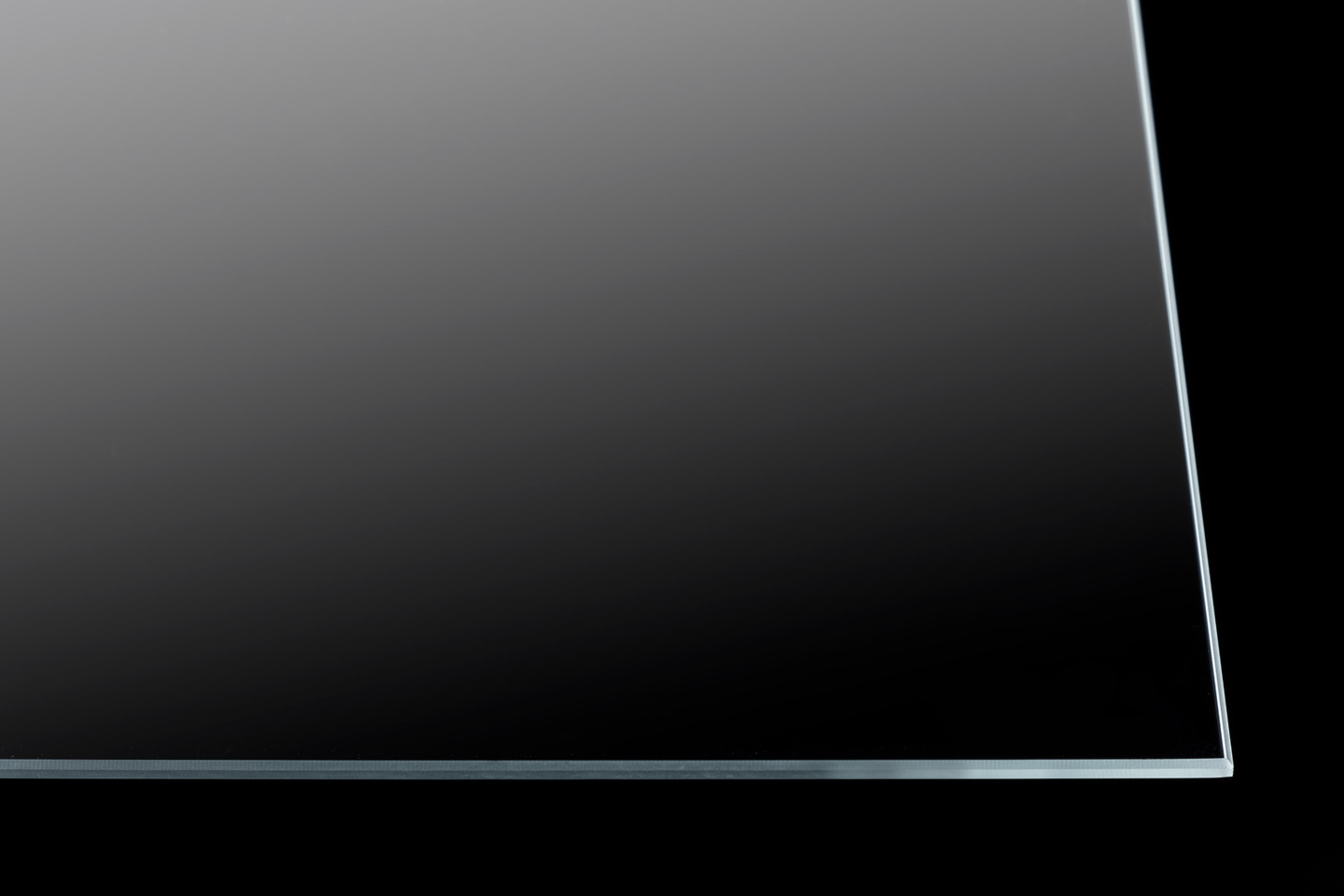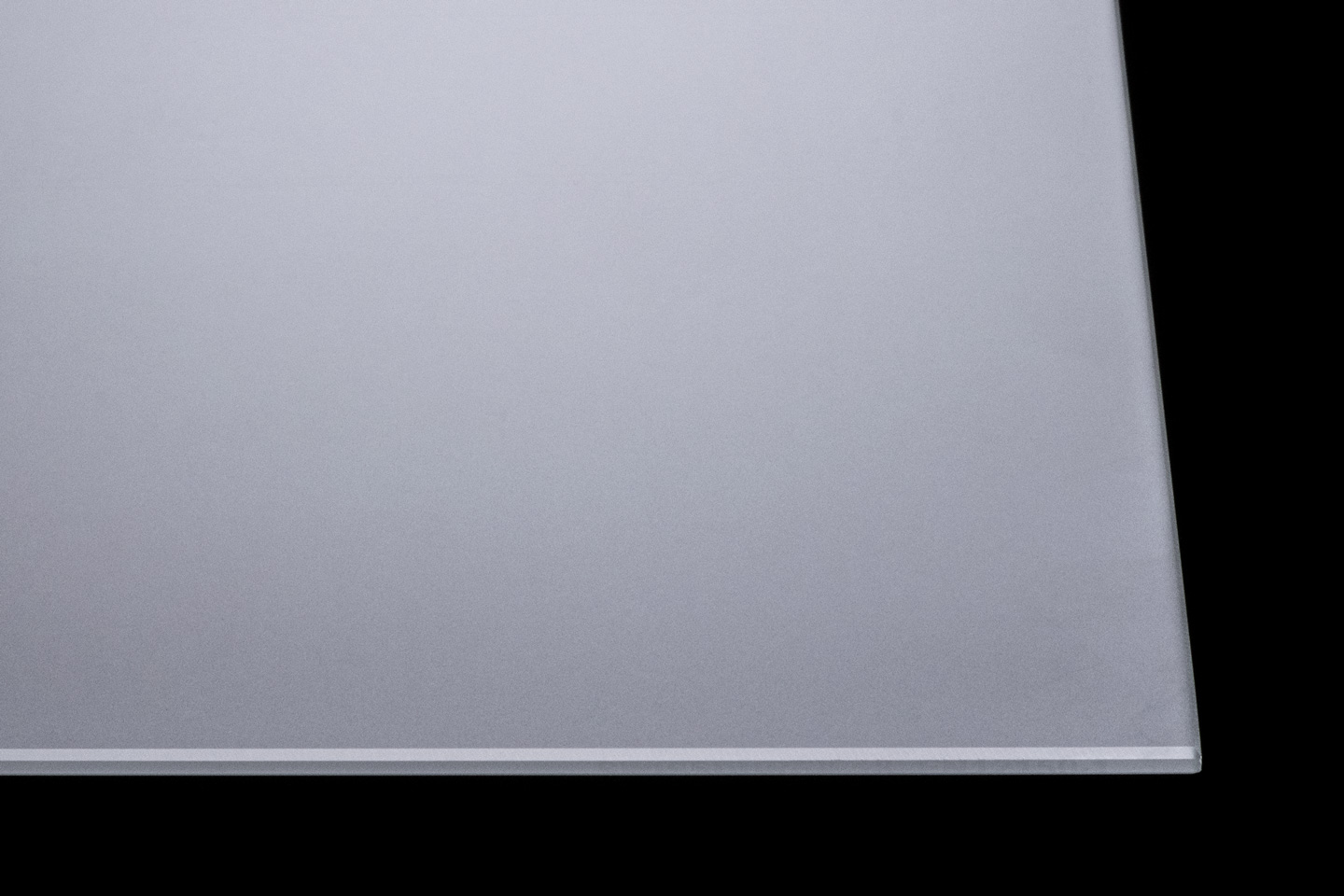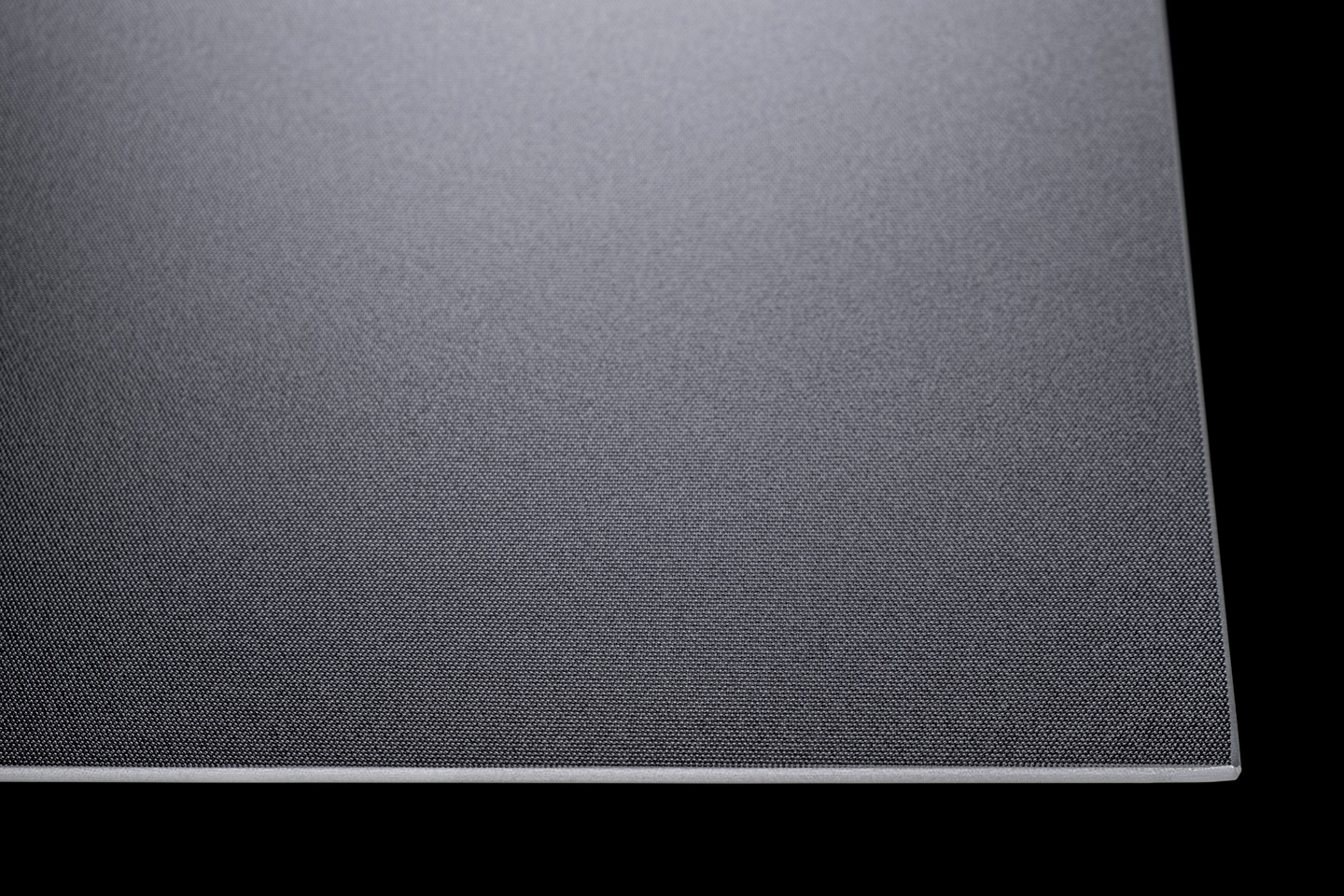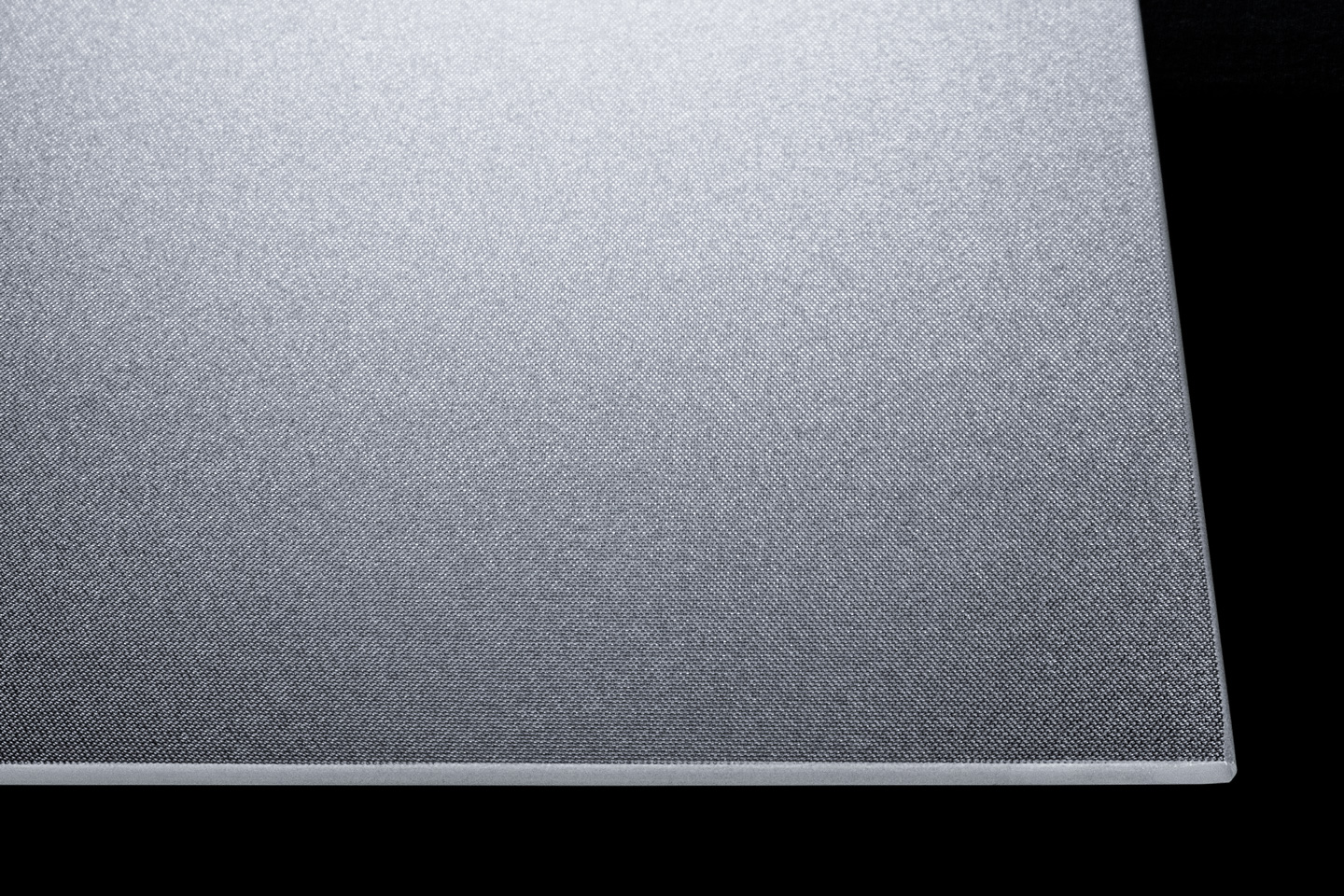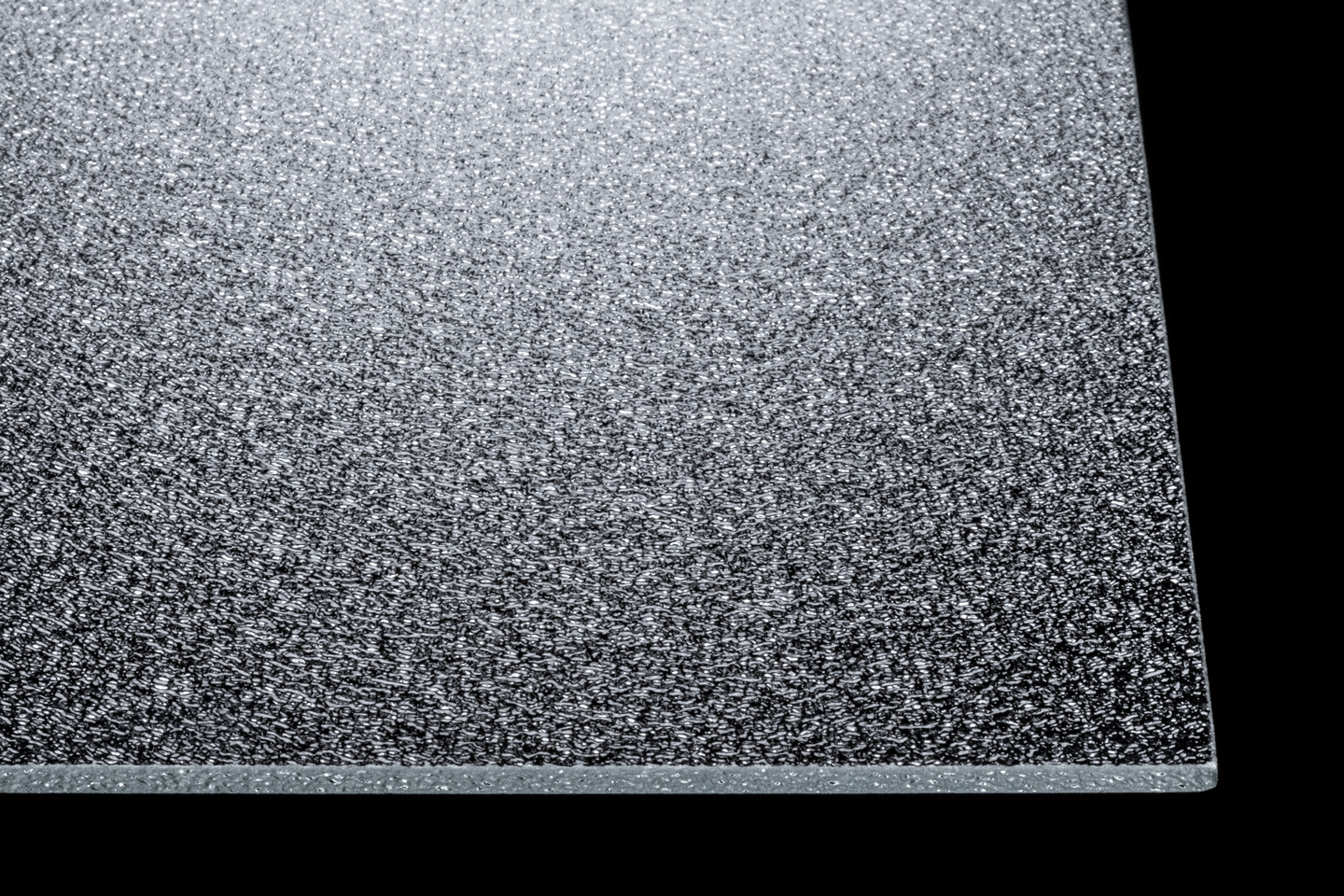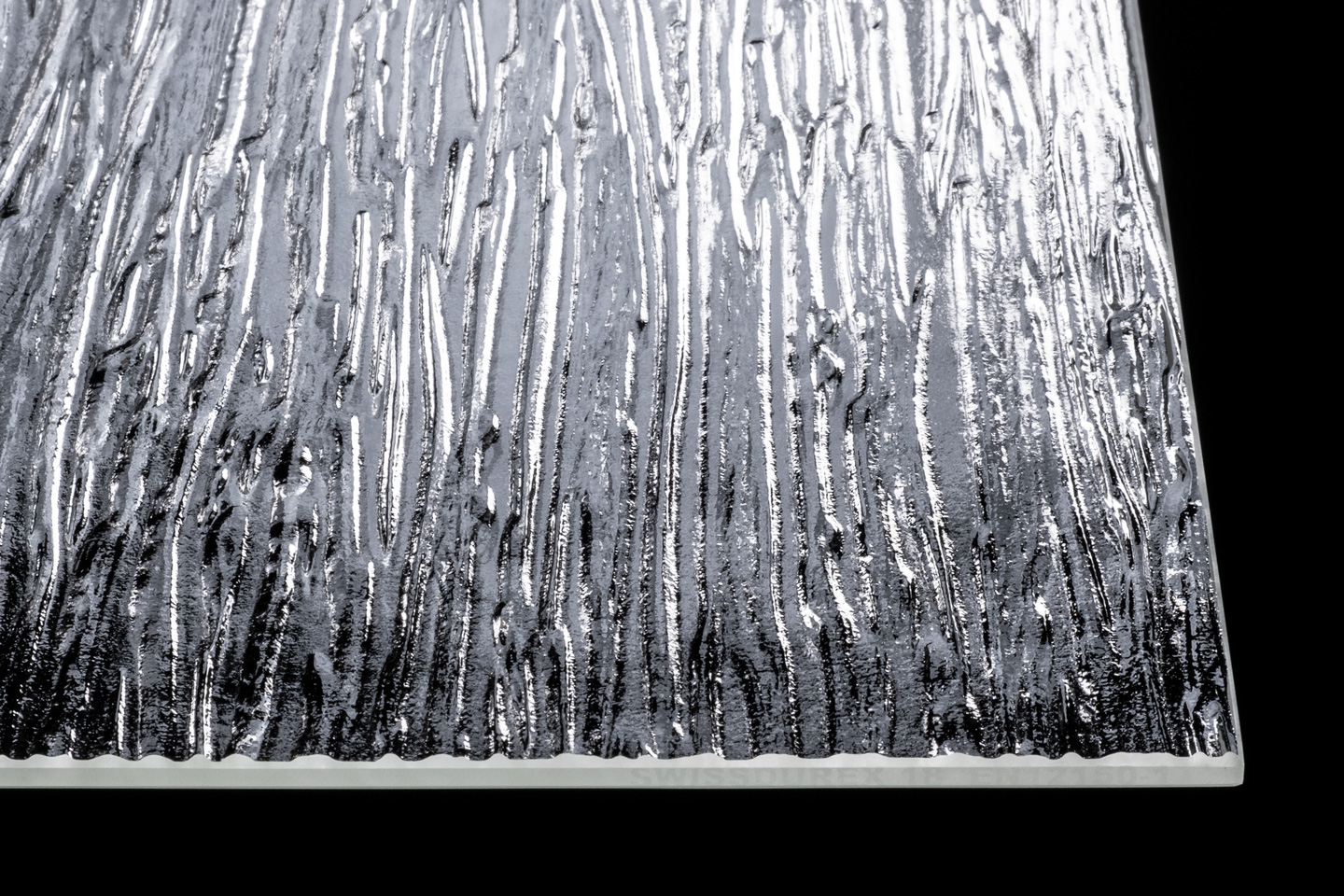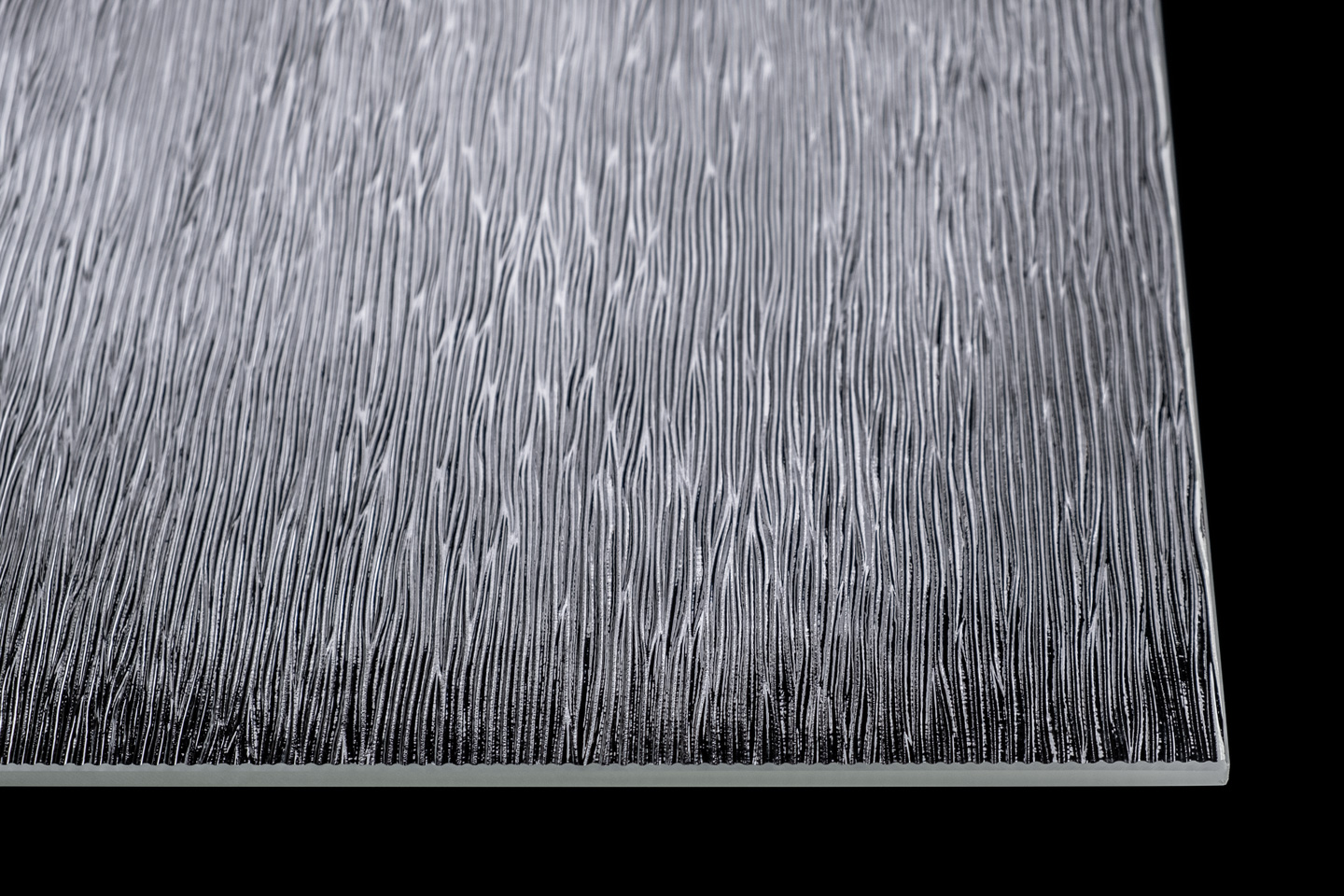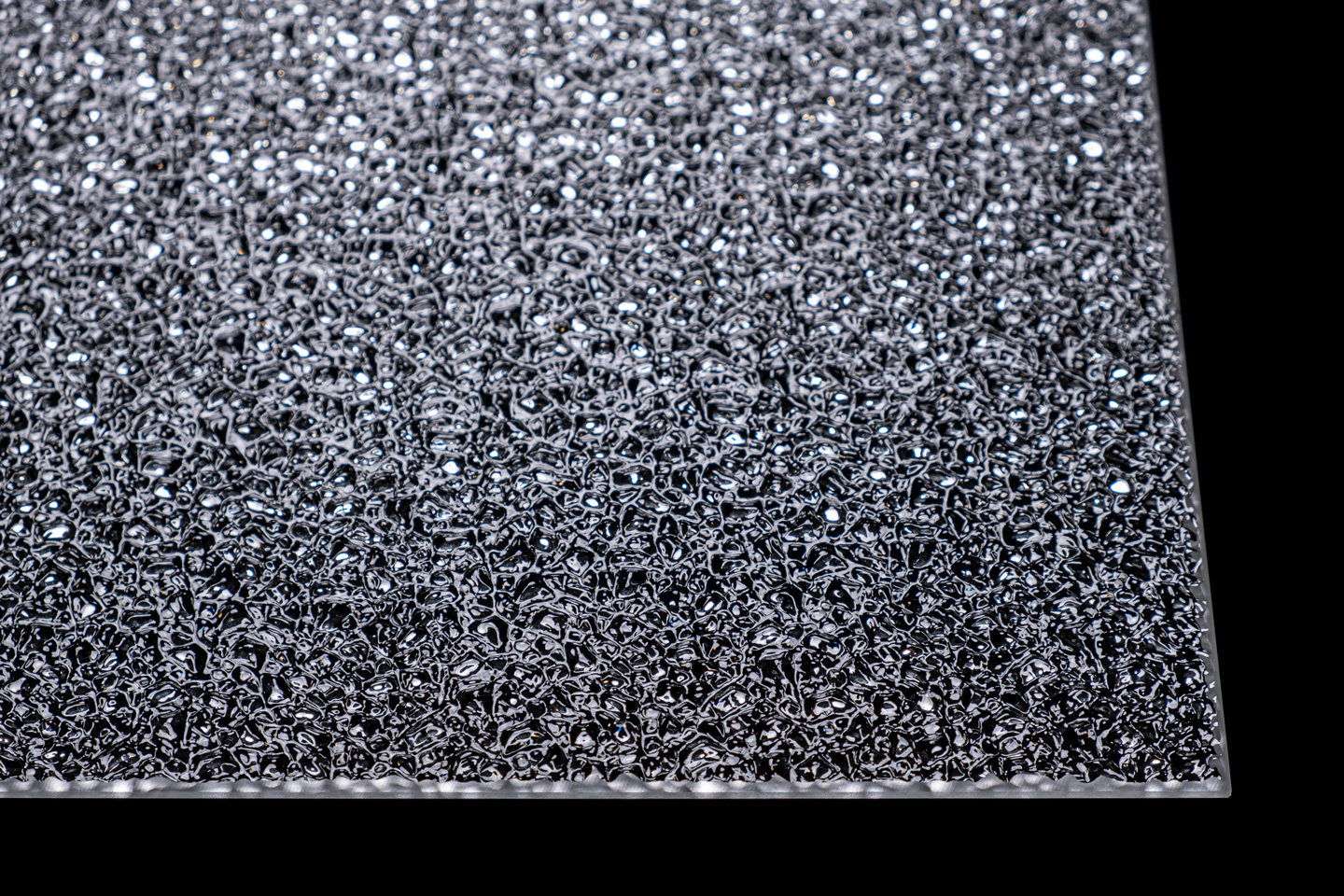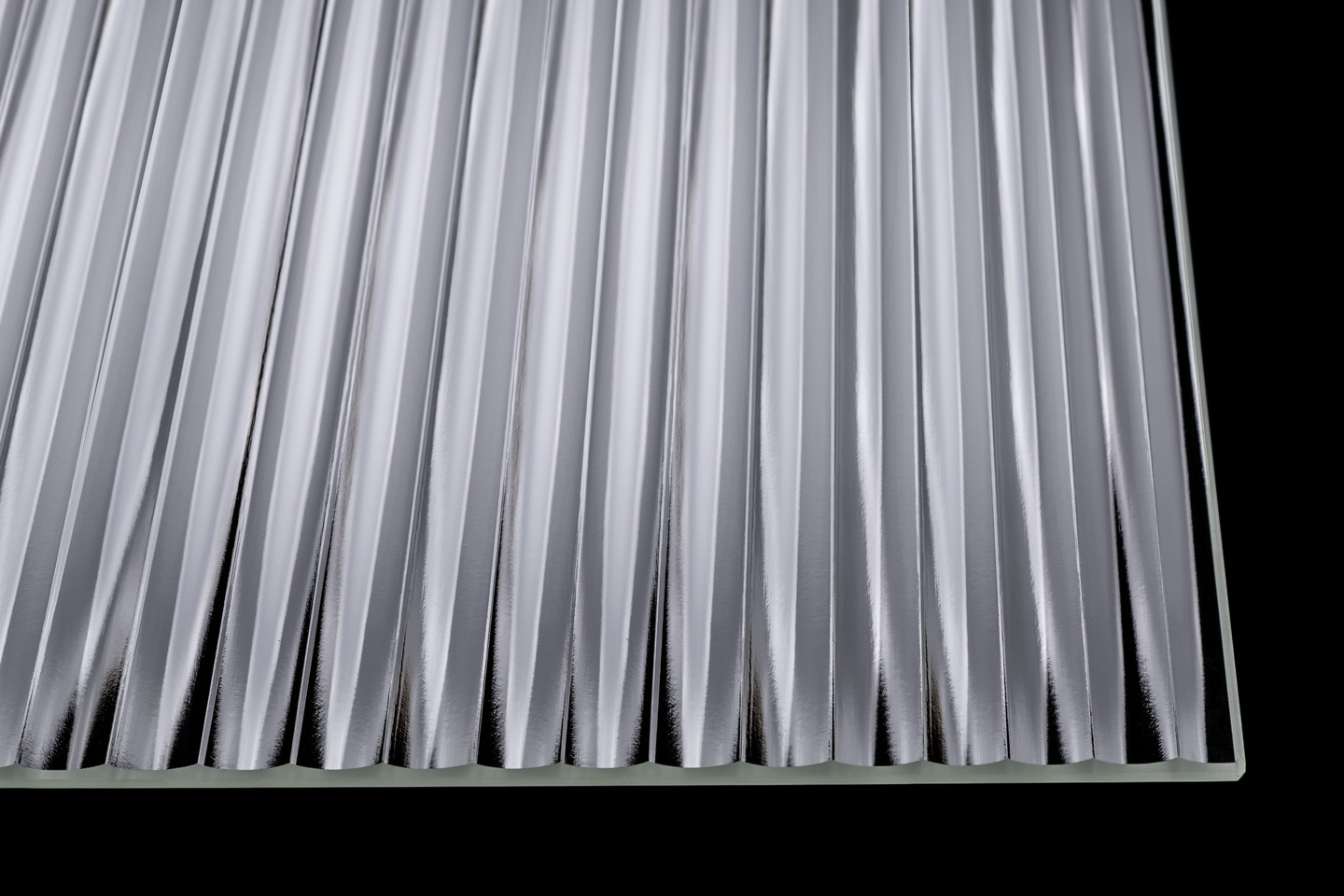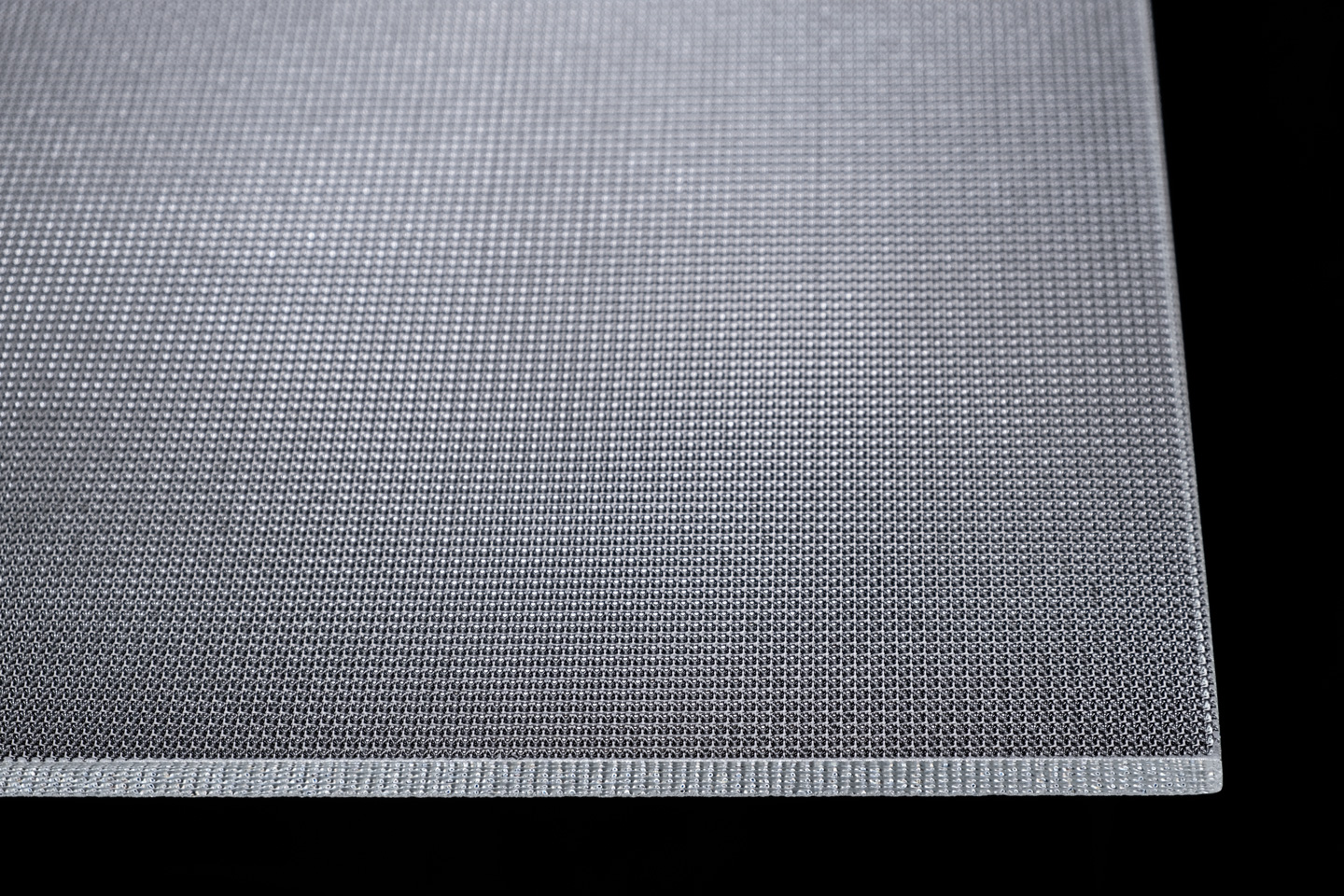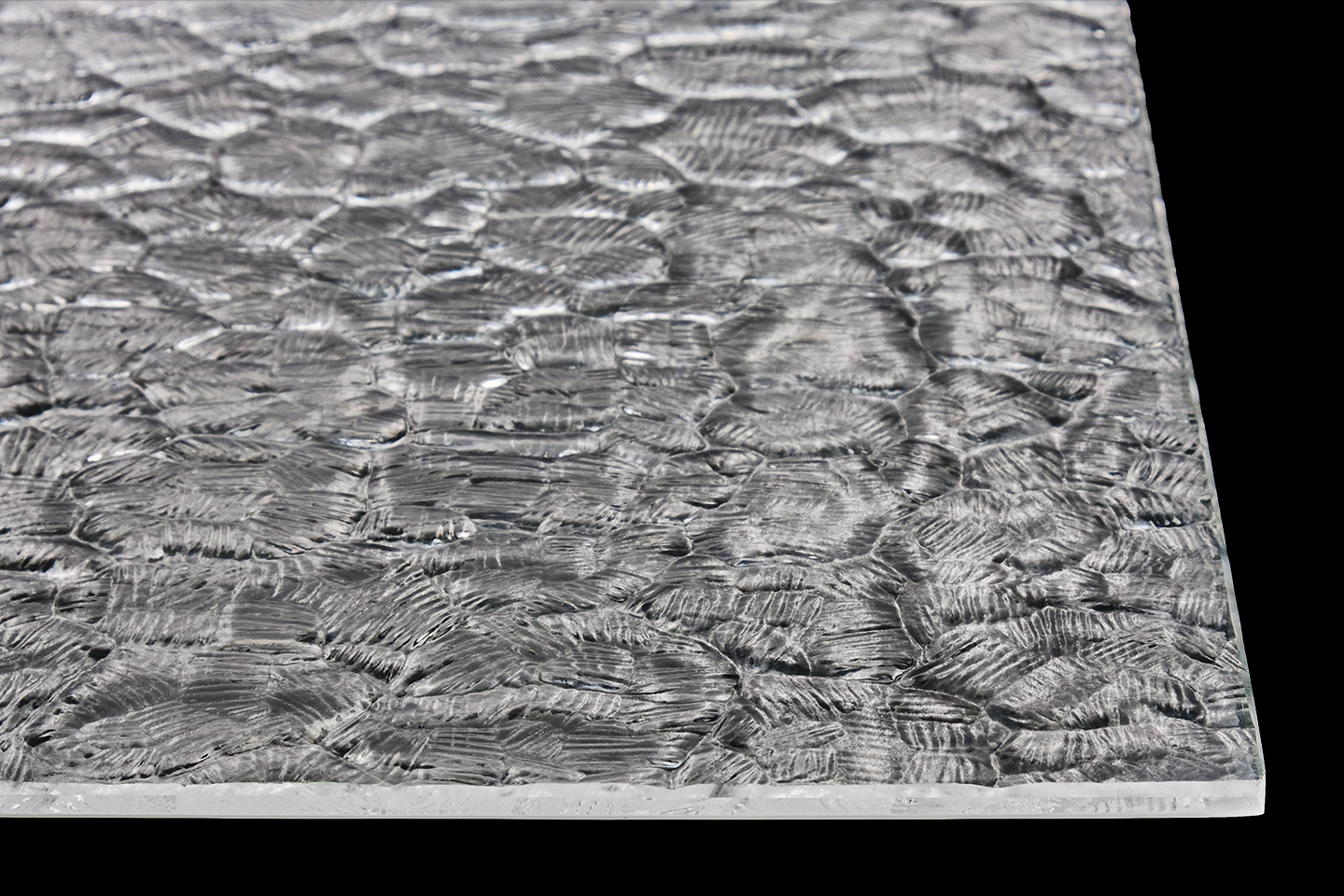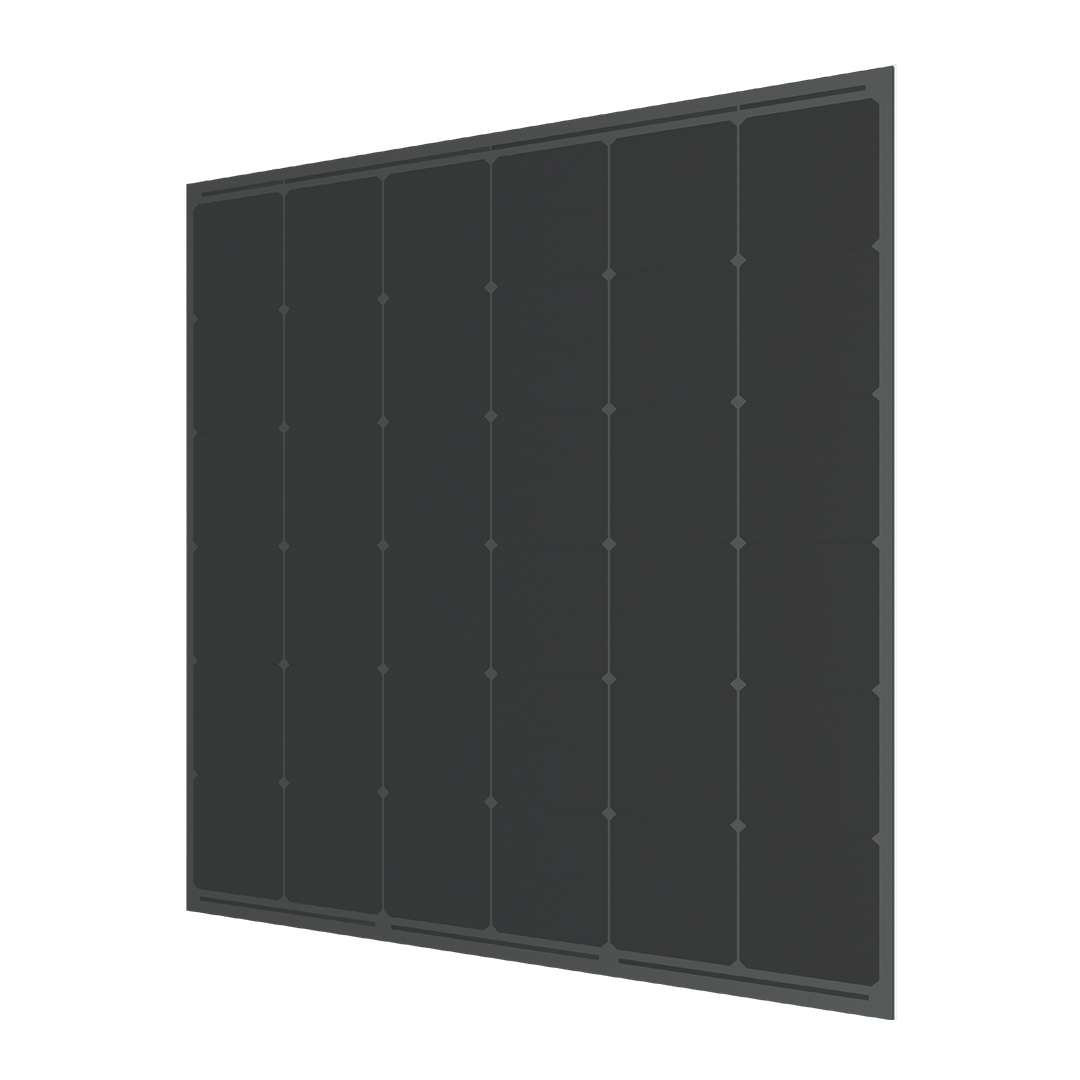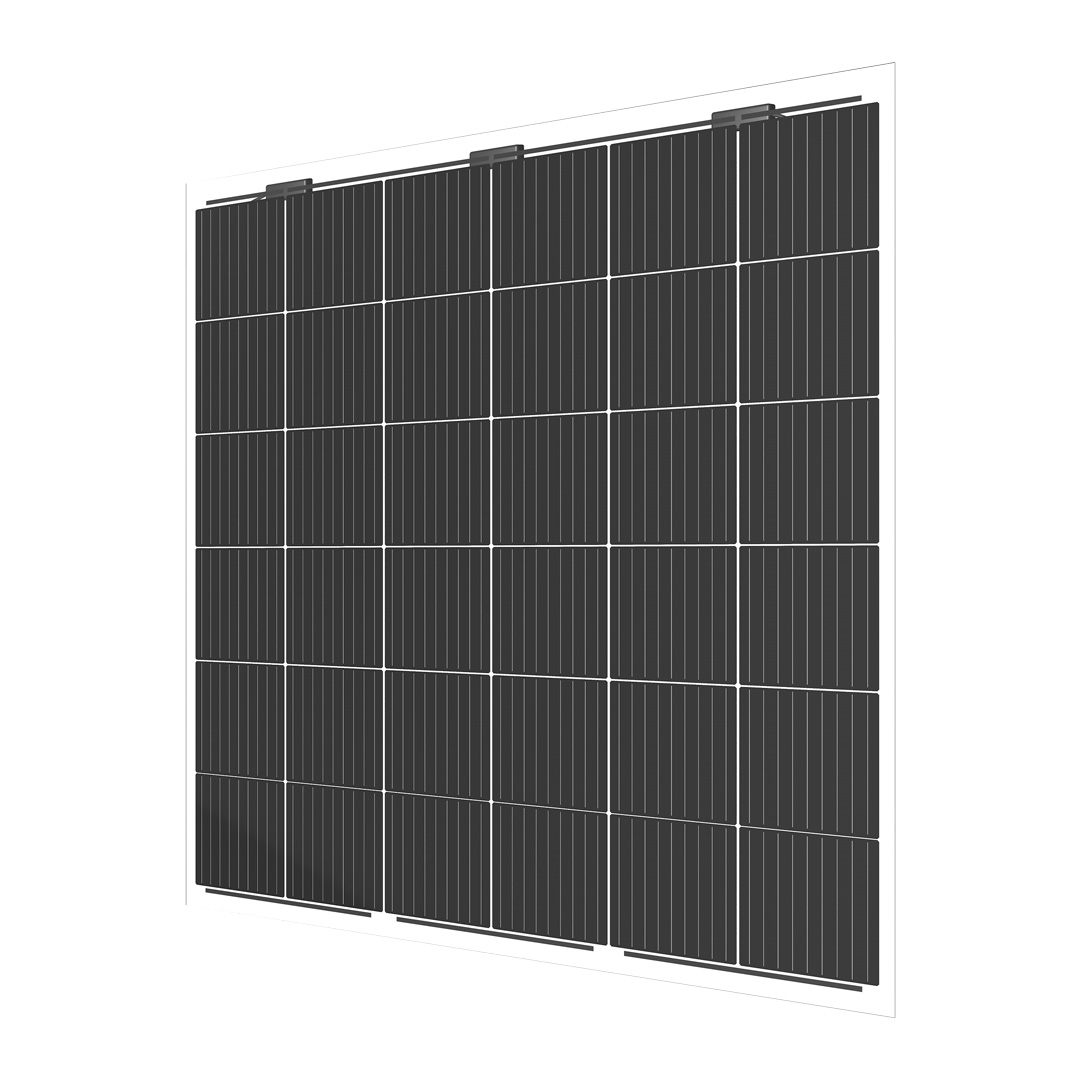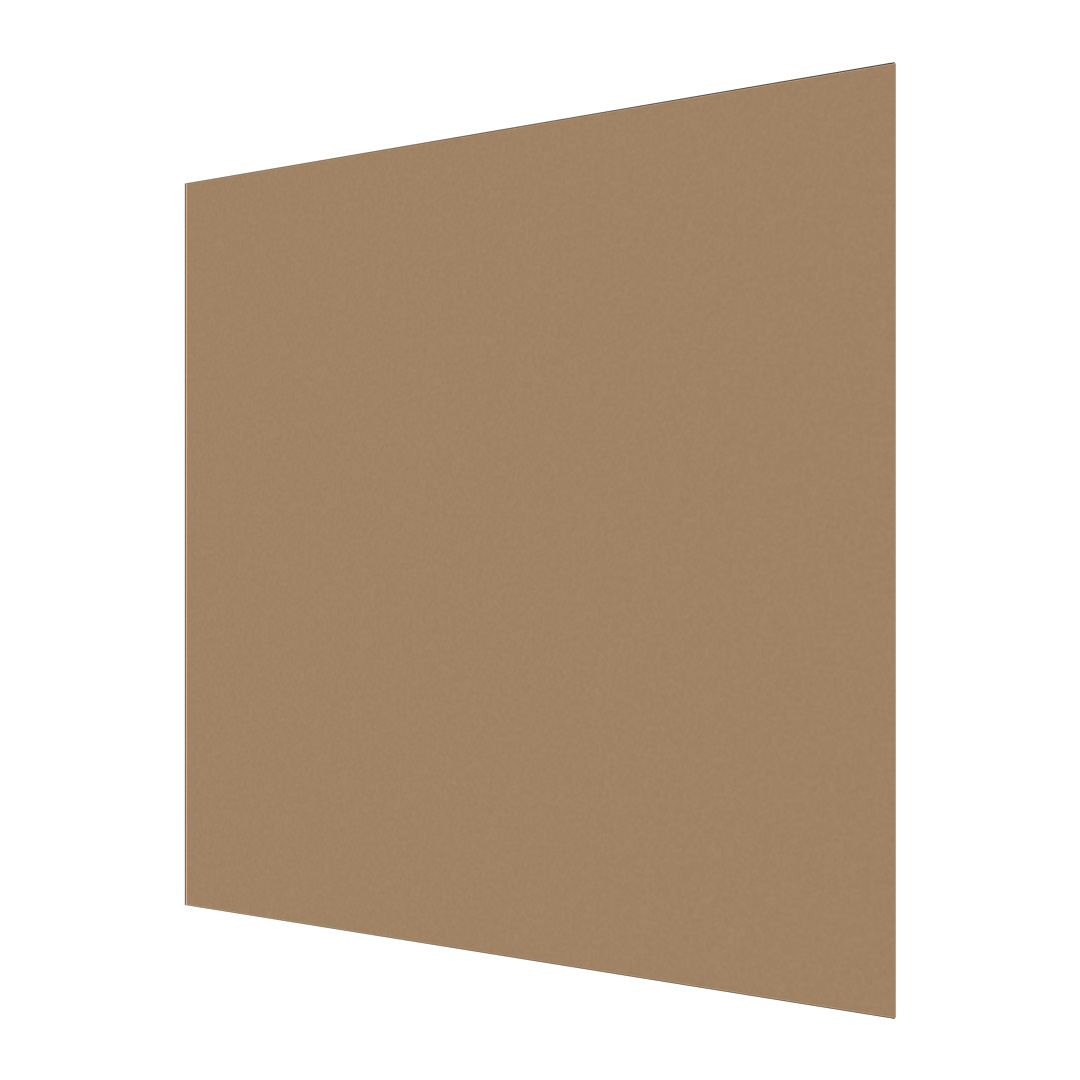Completed metamorphosis
Solar modules are concluding their development towards a freely designable building material. The design of this building material starts with the vision of the overall project. Three steps lead from the central idea to the solar module.
1. The grid defines the shape, size and power of the solar modules
Rectangles, triangles, polygons, circles, curves, cut-outs: the free choice of the solar modules’ geometries is the starting point for the design. The measurements range from 200 x 300 mm to 2400 x 4150 mm. Glass thicknesses of 2-12 mm per pane can be processed. Cost advantages are achieved by using the standard size of 1669 x 999 x 8 mm. The degree of hardening (TVG, ESG) can be chosen freely.
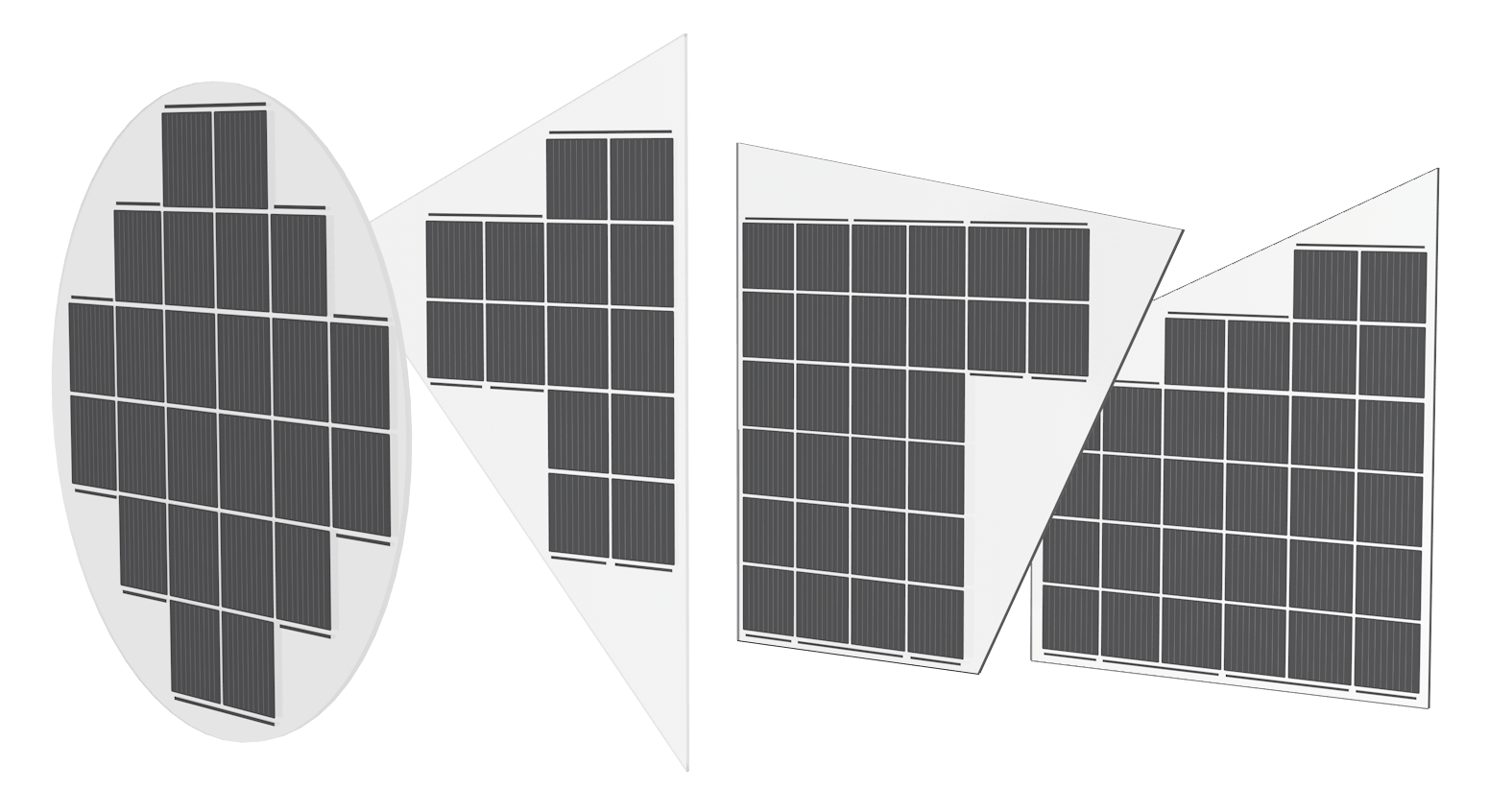
Special shapes
2. The appearance determines the surface of the solar modules
The full spectrum of the material «glass» is available for the design. Structures and finishes of surfaces are possible, along with the targeted use of reflections. The solar glasses «Fjord» and «Crystal» are the basis of most integrated solar modules, due to their subtle structuring and highest efficiency. This structuring ensures a high light transmission and minimal glare.
3. The character results from the colours and their intensity
Fine Line
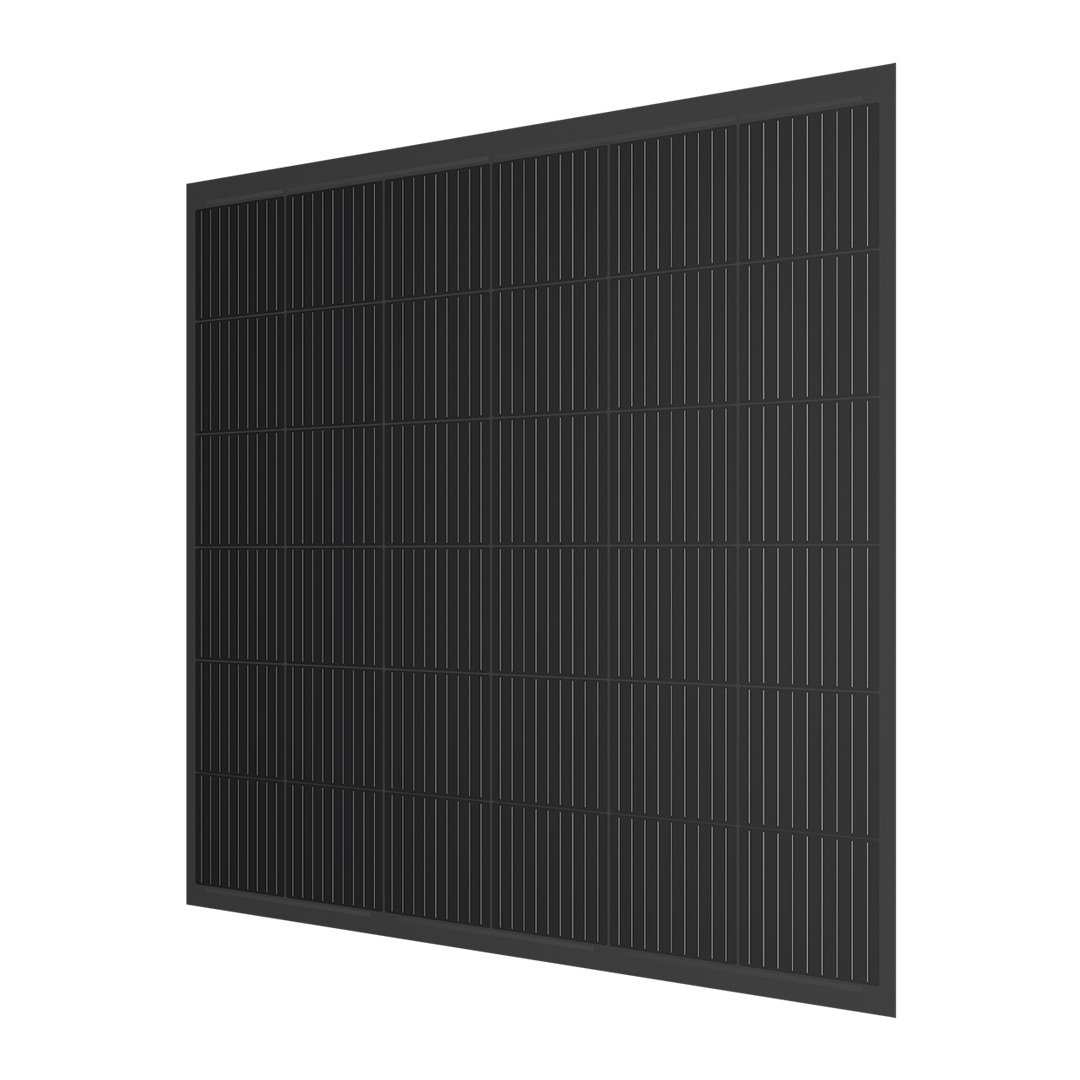
The classical pinstriped look allows accents with the help of technology. This design option is the most efficient both in terms of performance and costs.
Fine Art
The color scheme of the solar modules is open. Light pastel shades can be used for design as well as rich earthy notes. Megasol offers two color technologies:
SOLARCOLOR Classic
High color intensities (opacity) make the cell structure disappear, thus preserving the solar secret of the building envelope. Light intensities, on the other hand, allow a technoid impression and performances of a conventional solar module (up to 210 Wp/m2). On solarcolor.ch/classic/ can be designed and ordered individual samples. The SOLARCOLOR color fan is also available on solarcolor.ch .
New: SOLARCOLOR Morpho
SOLARCOLOR Morpho enables intensive coloration with the help of a new type of coating without color pigments. The coating ensures targeted light refraction, which reflects only a closely matched component of the light. This creates the desired color impression. Most of the light reaches the surface of the solar cell unhindered. Thanks to this narrow band of reflection, a SOLARCOLOR Morpho solar module has up to 94% of the efficiency compared to a conventional black solar module. The color impression remains largely angle-stable. Learn more at solarcolor.ch/morpho/
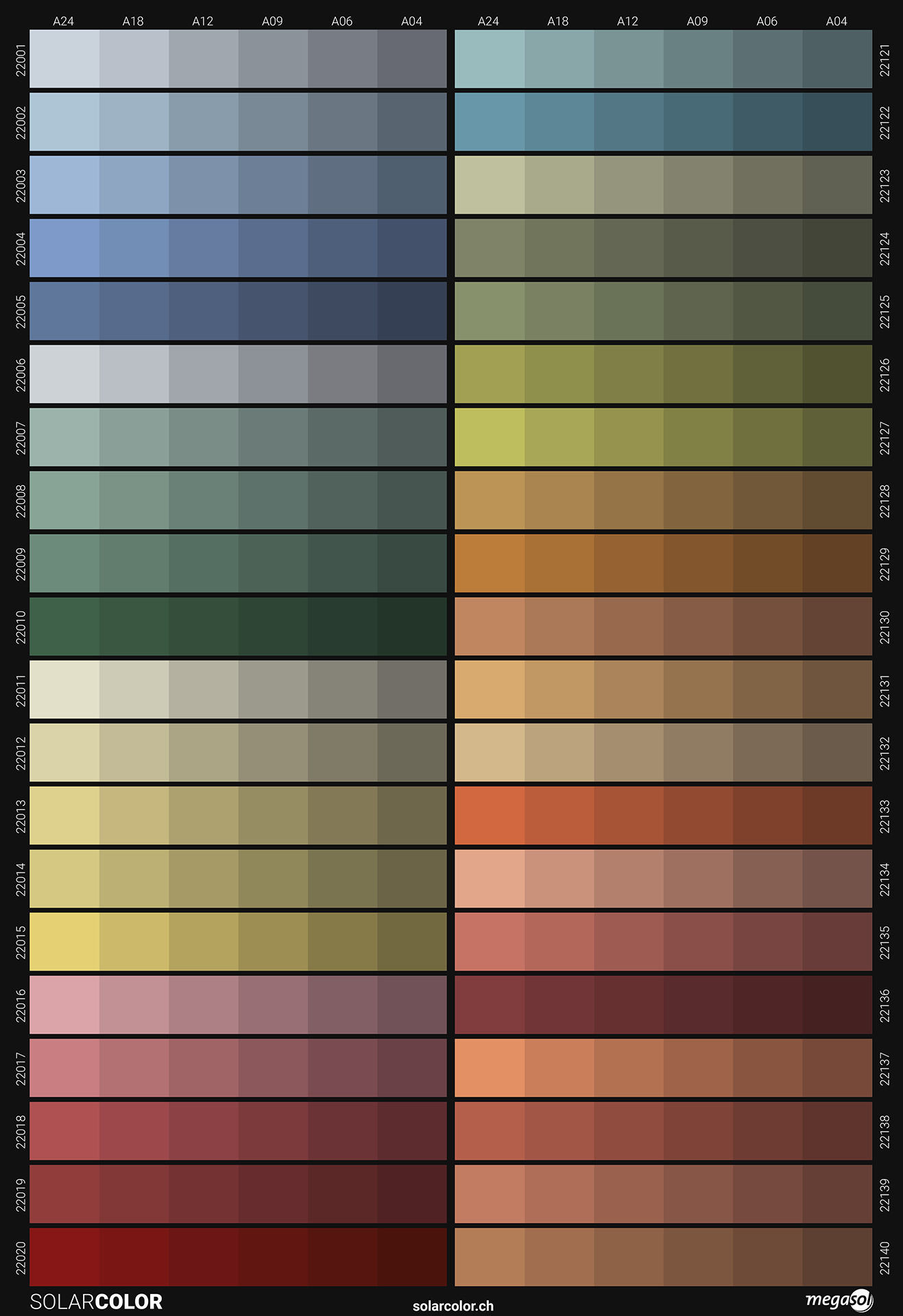
Upgrade ZeroReflect
The acceptance of solar installations among the population is very high. It is reinforced constantly with new types of designs and unrestricted individualisation options. ZeroReflect is a surface developed in the Megasol design laboratory that is glare- and reflection-free – regardless of the installation situation, angle or time of day.
It is used for particularly high demands in terms of «glare-free» solar modules. These include special installation situations, sensitive, subjective perception or regulatory restrictions (e.g. traffic junctions).
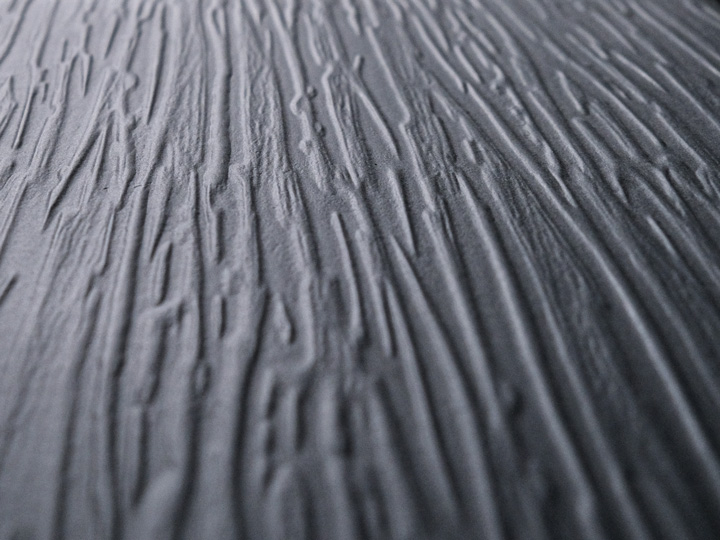
«Creek Granite Grey» with ZeroReflect
